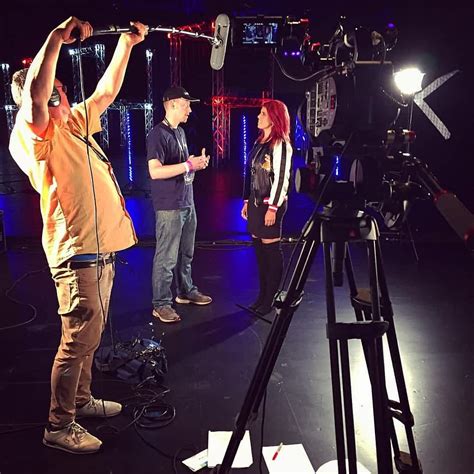Demystifying the Maze of Industry Entry
Securing a television production internship is akin to unlocking the golden gate to the mesmerising world of entertainment. It’s a portal that transports aspiring filmmakers from the realm of academia into the heart of the creative process.

Understanding the Interplay of Skill and Opportunity
The television production industry is a highly competitive landscape, with an estimated 200,000 people seeking internships annually. Success often hinges on a delicate balance between industry-specific skills and serendipitous opportunities.
Industry-Specific Skills:
- Technical Proficiency: Proficiency in video editing software (e.g., Adobe Premiere Pro, Final Cut Pro), camera operation, and lighting techniques.
- Communication and Collaboration: Exceptional verbal and written communication skills, coupled with the ability to work effectively in a team environment.
- Creativity and Problem-Solving: A keen eye for detail, creative thinking, and the resourcefulness to overcome production challenges.
Serendipitous Opportunities:
- Networking: Attendance at industry events, workshops, and conferences provides invaluable opportunities to connect with professionals.
- Online Platforms: Leveraging social media platforms (e.g., LinkedIn, Twitter) and online job boards (e.g., Indeed, Glassdoor) can increase visibility to potential employers.
- Personal Connections: Reaching out to family, friends, and alumni who have industry contacts can open unexpected doors.
Uncovering the Diversity of Roles
Television production internships offer a wide range of opportunities, catering to diverse interests and aspirations. Here are some of the most common roles:
Assistant Editor: Assist with assembling, editing, and organizing video footage.
Production Assistant: Perform various tasks on set, such as assisting with equipment setup, managing talent, and ensuring smooth production flow.
Camera Operator: Operate cameras and capture footage according to the director’s vision.
Lighting Technician: Control lighting fixtures to create the desired atmosphere and enhance the visual impact of the production.
Navigating the Application Maze
Applying for television production internships requires a strategic approach. Here are some essential tips:
Craft a Compelling Resume and Cover Letter: Highlight your relevant skills and experience, quantifying your accomplishments whenever possible.
Demonstrate Your Passion: Articulate why you’re passionate about television production and how you can contribute to the team.
Network and Follow Up: Attend industry events and connect with professionals on LinkedIn. Follow up with potential employers after submitting your application.
Be Persistent: Don’t give up if you don’t secure an internship immediately. Continue applying and networking to increase your chances.
Benefits of Embracing the Internship Experience
Internships offer a plethora of benefits that can accelerate your career trajectory:
Practical Experience: Gain hands-on experience in various aspects of television production, giving you an intimate understanding of the industry.
Industry Connections: Forge valuable relationships with professionals in the field, expanding your network and increasing your job prospects.
Professional Development: Acquire valuable skills, enhance your communication abilities, and develop your problem-solving capabilities.
Career Advancement: Internships often serve as a stepping stone to permanent positions in the industry, providing a competitive advantage in the job market.
Table 1: Industry-Specific Skills for Television Production Internships
| Skill | Description |
|---|---|
| Video Editing | Proficiency in using software like Adobe Premiere Pro or Final Cut Pro |
| Camera Operation | Ability to operate a variety of cameras and capture high-quality footage |
| Lighting Techniques | Understanding of basic lighting principles and techniques |
| Communication | Excellent verbal and written communication skills |
| Collaboration | Strong teamwork abilities and ability to work effectively with others |
| Creativity | Demonstrated ability to think creatively and problem-solve |
Table 2: Serendipitous Opportunities for Television Production Internships
| Opportunity | Description |
|---|---|
| Networking | Attend industry events, conferences, and workshops |
| Online Platforms | Utilize social media (LinkedIn, Twitter) and online job boards (Indeed, Glassdoor) |
| Personal Connections | Reach out to family, friends, and alumni in the industry |
Table 3: Diversity of Roles in Television Production Internships
| Role | Responsibilities |
|---|---|
| Assistant Editor | Assist with assembling, editing, and organizing video footage |
| Production Assistant | Perform various tasks on set, such as assisting with equipment setup, managing talent, and ensuring smooth production flow |
| Camera Operator | Operate cameras and capture footage according to the director’s vision |
| Lighting Technician | Control lighting fixtures to create the desired atmosphere and enhance the visual impact of the production |
Table 4: Benefits of Television Production Internships
| Benefit | Description |
|---|---|
| Practical Experience | Gain hands-on experience in various aspects of television production |
| Industry Connections | Forge valuable relationships with professionals in the field |
| Professional Development | Acquire valuable skills, enhance communication abilities, and develop problem-solving capabilities |
| Career Advancement | Internships often serve as a stepping stone to permanent positions in the industry |
Embracing the Power of Internships
In the kaleidoscopic world of television production, internships serve as a vibrant gateway, illuminating the path to a fulfilling career onscreen or behind the scenes. By honing industry-specific skills, seizing serendipitous opportunities, and navigating the application maze effectively, aspiring filmmakers can unlock the potential of internships and propel their careers to new heights.
